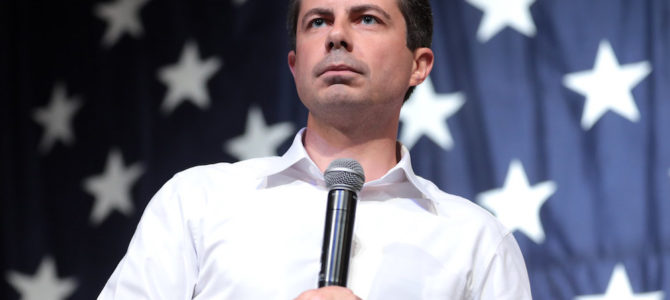2020 Democratic presidential contender Pete Buttigieg’s campaign team have been talking to The New York Times about alleged racial problems between upper campaign management and minority staffers.
In the past two months, Buttigieg’s campaign has done two emotional “diversity and inclusivity training” sessions at which people sometimes cry, according to the Times story. Instead of focusing on Buttigieg’s campaign strategy, with just one week until the Iowa caucus, campaign staff are focusing on internal identity politics.
Buttigieg has a history of race-related woes. Last October, the former South Bend, Indiana mayor falsely claimed support from African American Democrat leaders in the key primary state of South Carolina, according to The Intercept.
In June 2016 during his mayoral term, Buttigieg faced race-related backlash after a white police officer in his city fatally shot a black robbery suspect. CNN ran clips of a town hall in South Bend where African American residents chewed him out in public. In March 2012 Buttigieg fired the town’s black police chief and replaced him with a white police chief amid accusations South Bend was hiding recordings of racist comments from white city police officers.
According to The New York Times, “in interviews, current and former staff members of color said they believed that senior Buttigieg officials didn’t listen to their concerns and ideas about the campaign. One said there was a daily ’emotional weight’ on people of color who felt they were employed in order to help the campaign meet its ambitious diversity targets. Some Hispanic employees felt disrespected when managers asked them to translate text, even if they didn’t speak Spanish.”
Buttigieg staffers also circulated a survey of microaggressions, accepting complaints only from minorities.
“Please only fill out this survey if you identity as a person of color. [Your answers] will be used to inform our white colleagues about privilege and microaggressions,” the survey read, essentially asking minority team members to tattle on their white colleagues.
One of the pre-made response boxes read: please check if you have ever experienced with a white colleague; “been called the name of a different staff member of color.”
Buttigieg staffers circulated a survey of microaggressions on the campaign.
"Please only fill out this survey if you identify as a Person of color," it read. Answers "will be used to inform our white colleagues about privilege and microaggression." https://t.co/UulPh9UkaA pic.twitter.com/oCRELaOopT
— Reid J. Epstein (@reidepstein) January 28, 2020
Since the initial report on the Buttigieg campaign was released, Buttigieg avoided answering further questions on the subject. According to the New York Times, after a town hall event in Iowa, Buttigieg avoided a question about whether he has discussed the earlier New York Times article with his staff.
“I want everyone on our team to know that I’m proud of them, I’m thankful for them and I support them,” Buttigieg responded.
His campaign published a full statement on the campaign’s diversity goals and initiatives:
From the very beginning, we set out to create a campaign that values diversity and inclusion because we believe it will not only build a better campaign, but ultimately a better country. Pete for America is proud about and committed to creating a culture of inclusion and belonging, and we are committed to living out those values every day across the campaign. In order to do so, we know we have to be proactive and intentional when it comes to diversity and inclusion.
According to the latest Washington Post survey, Buttigieg has only 2 percent support among black voters nationally. His lack of support among minority groups at large has been an area of concern for his minority staff members and for the durability of his campaign. Without support from this large voting bloc of Democrats, it will be nearly impossible for Buttigieg to cinch the Democratic presidential nomination.









